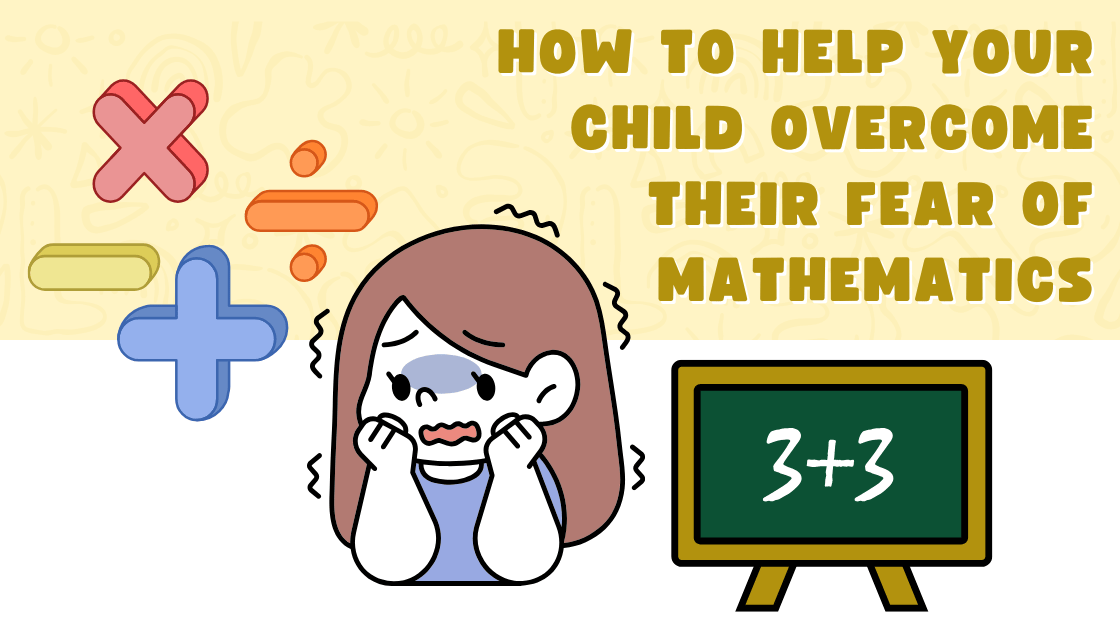How to Help Your Child Overcome Their Fear of Mathematics
Fear of mathematics, also known as math anxiety or arithmophobia, affects many children during their school years. This fear can significantly impact their academic performance and perception of the subject.
However, with the right strategies, you can turn this challenge into an opportunity for learning and growth. Here are effective ways to help your child overcome this barrier.
1. Understanding the Fear of Mathematics
The first step is identifying the root of the problem. Math anxiety may stem from negative experiences, difficulty understanding abstract concepts, or even discouraging remarks such as «I was bad at math too.» Avoid such phrases and focus on reinforcing a positive mindset toward learning.
How to Address This Fear
- Talk to your child about how they feel about math.
- Normalize making mistakes as part of the learning process.
- Reinforce the idea that success depends on effort, not innate ability.
2. Using Visual and Practical Methods
Mathematics can seem abstract to children. Using visual aids like diagrams, graphs, or manipulatives can simplify complex concepts. For instance, building blocks are excellent tools for learning fractions or geometry.
Recommended Activities
- Use educational apps or games that integrate technology and artificial intelligence.
- Engage in real-life math exercises, such as calculating change at a store or measuring ingredients while cooking.
3. Encouraging Regular and Guided Practice
Repetition is essential for building knowledge and confidence. Spending a few minutes daily solving math problems not only improves understanding but also reduces exam-related anxiety.
Tips for Maintaining Motivation
- Set achievable goals and celebrate milestones, no matter how small.
- Introduce math problems related to your child’s interests, like sports or video games.
Psychologist Carol Dweck’s research highlights the importance of fostering a growth mindset. Teach your child that math skills can be developed with effort and persistence, and that mistakes are learning opportunities.
Effective Strategies
- Remind your child that even experts faced challenges initially.
- Provide constructive feedback instead of criticism.
5. Seeking Professional Help if Necessary
If the fear persists, consider specialized methods like personalized tutoring or educational programs designed to address math anxiety. Organizations like Kumon or digital platforms such as Smartick offer tailored solutions to suit each child’s pace.
Frequently Asked Questions (FAQ)
1. How do I know if my child has a fear of math?
Signs include avoiding math tasks, excessive frustration when solving problems, and physical symptoms like sweating or nervousness before tests. Open conversations about their feelings are crucial.
2. What if I’m not good at math myself?
You don’t need to be an expert. Learn alongside your child, explore online resources, or use educational games to reinforce basic concepts.
3. How much time should my child spend practicing math?
15 to 30 minutes daily is enough to see steady progress without overwhelming your child. Focus on quality over quantity.
Conclusion
Overcoming the fear of math requires patience, empathy, and a personalized approach. By implementing these strategies, you’ll not only help your child build confidence in this subject but also equip them with valuable skills for life. Remember, learning is a journey you can enjoy together!
Want to discover more tips on education and child development? Explore other articles on our blog to support your child’s learning every step of the way.






